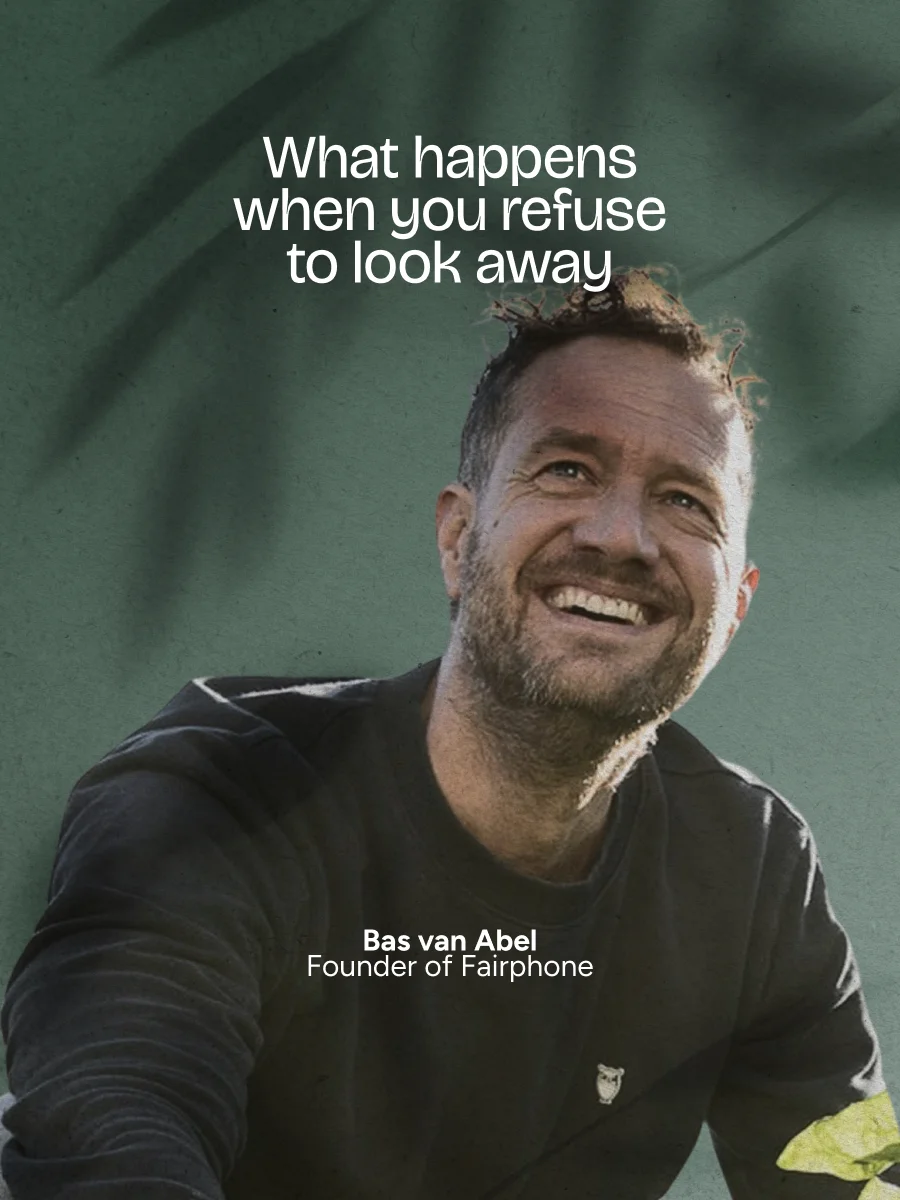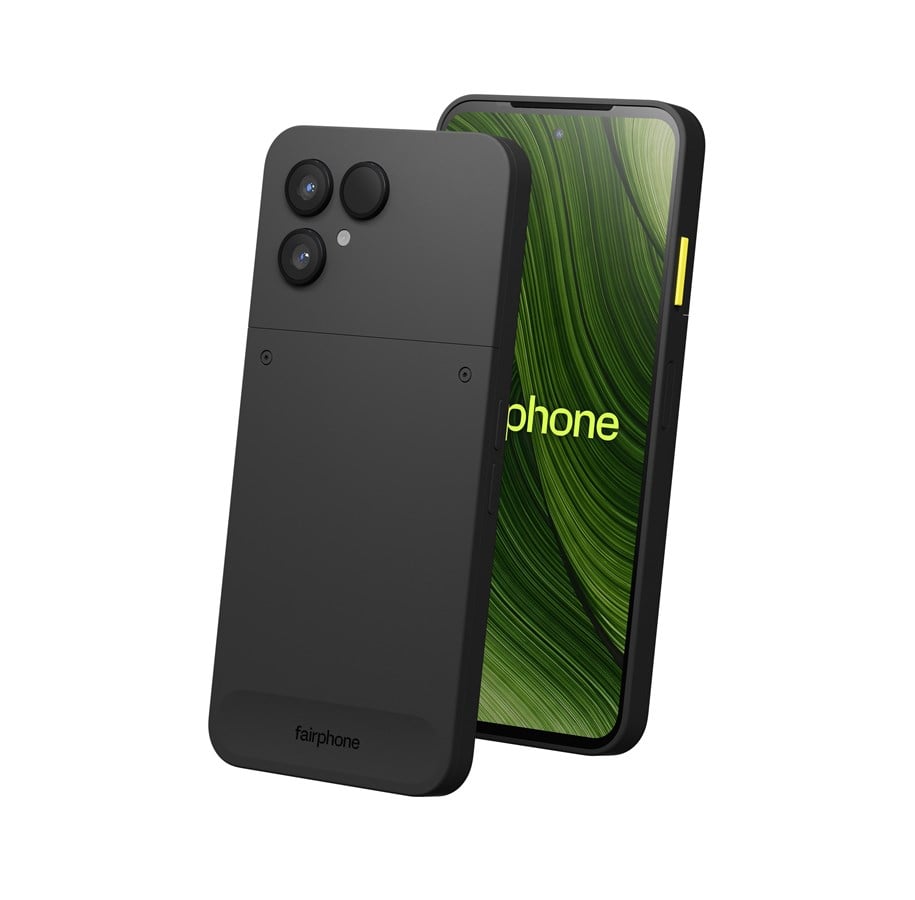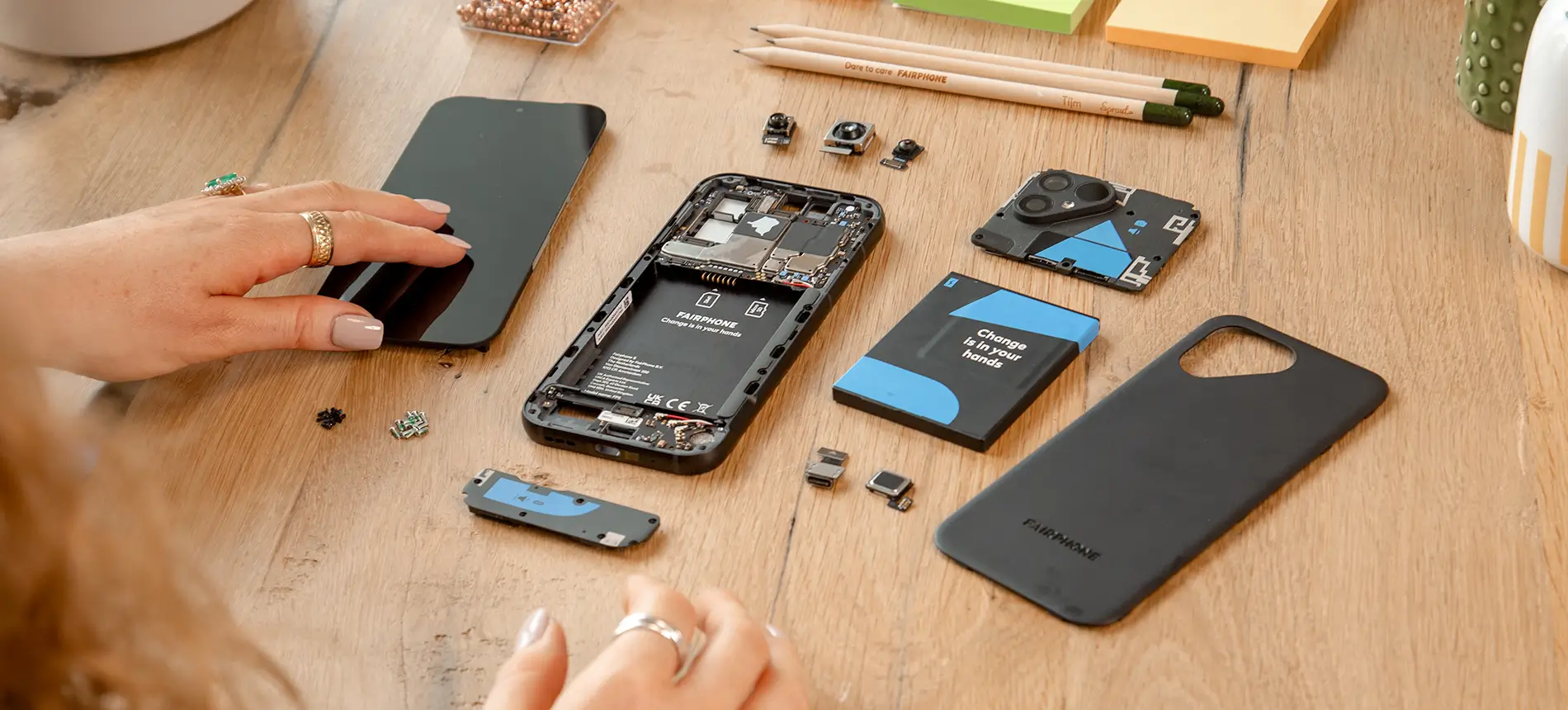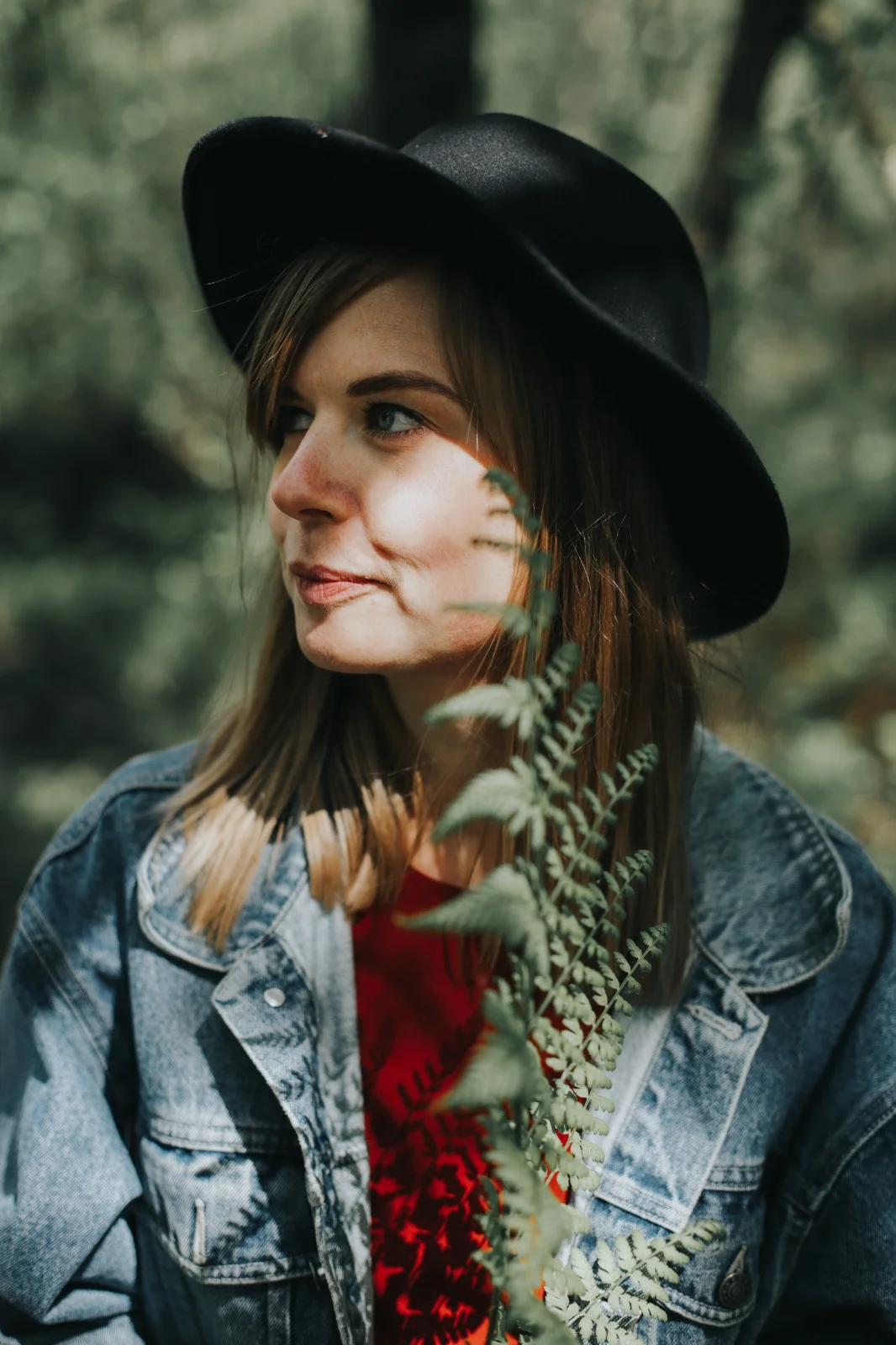
Most of us never think twice about where our phones come from. We drop them, crack the screen, buy a new one, repeat. But Bas van Abel, designer and idealist, couldn’t stop thinking about it.
In 2010, while working at Waag – a creative research lab in Amsterdam – he asked a deceptively simple question: ‘What’s actually inside a smartphone?’ That sleek, magical rectangle we depend on for everything, yet understand almost nothing about. When no one in the industry seemed to have a straight answer, Bas and the Waag team decided to find out for themselves and took it apart. Literally.
What they uncovered was a messy circuit of conflict minerals, unfair wages, and environmental damage. The deeper they looked, the clearer it became: one of the most advanced products on Earth was built on some of the most outdated ethics imaginable.
That realization sparked Fairphone: a rebellion disguised as a research project. What started as curiosity turned into a campaign for fair electronics, shining a light on what our shiny gadgets really cost. Not in money, but in human lives and planetary resources.
But to change the system, they realized they had to join it. So in 2012, Fairphone joined Bethnal Green Ventures in London – a social innovation incubator for people crazy enough to think they can make capitalism a little less... well, capitalistic. It was the first real step from idea to industry. Turns out that if you want to fix the phone market, you need to do more than just philosophize about it. You actually have to build your own phone.
So they did. Fairphone became an independent company in 2013. By 2019, they launched the Fairphone 3, which The Guardian called: ‘The most ethical and repairable phone you can buy.’
Everyone loves the idea of an ethical phone, until you realise how deep the rabbit hole goes. The smartphone supply chain is messy like a bowl of spaghetti. Every component touches dozens of countries and hundreds of hands. But instead of being discouraged, Bas decided to follow every wire, every chip, every screw.
Fairphone became the first company to map and intervene in every step – from conflict-free minerals in Congo to worker well-being programs in China. And while the rest of the industry was obsessed with thinner, faster, newer, Bas obsessed over something radical: repairability.

Fairphone phones can be opened with a mini screwdriver. You can replace the battery, the camera, the screen: like in the old days. As Bas once put it: ‘If you can’t open it, you don’t own it.’
Building a fair phone wasn’t easy and Bas never claimed perfection. Fairphone isn’t conflict-free, waste-free, or emission-free (yet). But it’s honest about the process – and that honesty might be the most radical feature of all. When other tech companies hide their secrets, Fairphone shows the guts. They publish every step of their supply chain, even the imperfect parts. Because the goal isn’t to be flawless but to get better.
Fairphone is now a full-fledged company, but Bas van Abel insists he never set out to be an entrepreneur. He started with a campaign, not a business plan. That goes back to what he calls the most important lesson of his design career: always focus on the dark matter. In an interview with MT/Sprout he said: ‘Someone once told me that if you want to change the world, you have to look at what you can’t see. Because that’s what shapes everything you do see.’
In other words: don’t just change one product, change the systems that make that product possible. The economic systems, the social and cultural norms, the legislation, the design philosophies, and the people behind it all.
Our economic system still dictates how most of society functions. Companies are key players in that machine, but the link between what consumers see and what happens behind the scenes has been severed. As a company, Bas states, it’s your job to make that visible again.
But building something from pure ideals can burn you out, too. Bas learned that the hard way. After years of living and breathing Fairphone – fighting for funding, suppliers, ethics, and impact – he hit a wall. ‘It’s the kind of company that pulls you in completely,’ Bas told in that same MT/Sprout interview in 2023, ‘It demands everything.’

In 2018, Bas therefore stepped down as CEO and moved into a non-executive role on the board. The burnout forced him to slow down. And, eventually, to see things differently. ‘That transition – from founder, the central figure in the organisation, to someone at more of a distance – wasn’t easy,’ Bas reflects. ‘But it turned out to be good for me. I’m better at selling things that don’t exist yet, than managing things that already do.’
Today, Bas focuses on the bigger, more strategic questions. The kind that sit at the intersection of design, economics, and human behaviour. The spark that started Fairphone never really went out. It just found a more sustainable power source.
Since stepping down as CEO, Bas has also taken his curiosity elsewhere: exploring circular business models, regenerative design, and the power of open systems. His new ventures – like De Clique, that turned waste into new resources in very short loops – still carry that same DNA of transparency and stubborn optimism
Fairphone’s ripple effect continues, inspiring new generations of conscious consumers who want their products to tell better stories. Stories not of exploitation and planned obsolescence, but of craftsmanship, connection, and care.
That true innovation isn’t just about faster chips or bigger screens – it’s about honesty and fairness. That design isn’t only about what things look like, but how they work – and who they work for. And maybe most of all: that idealism and business aren’t opposites, they’re just not very well acquainted (yet).
Bas shows that ‘doing good’ doesn’t have to be an afterthought tacked onto a CSR report. It can be the motherboard of a business.
Florine started out as an art critic, but that turned out to not be quite her thing. So, she did what any sensible person would do - packed her life (and family) into a tiny campervan and roamed the planet for seven years. Now back in the Netherlands, she’s juggling life as a strategic advisor for a Dutch non-profit, while also writing for magazines and platforms. When she’s not typing away, you’ll probably find her treasure-hunting at thrift stores to jazz up her tiny house by the sea. Or wandering outdoors, because apparently sitting still isn’t really her vibe.

Subscribe to the monthly mindshift
Our very best, every month in your mailbox. Subscribe now and join the reloved revolution!